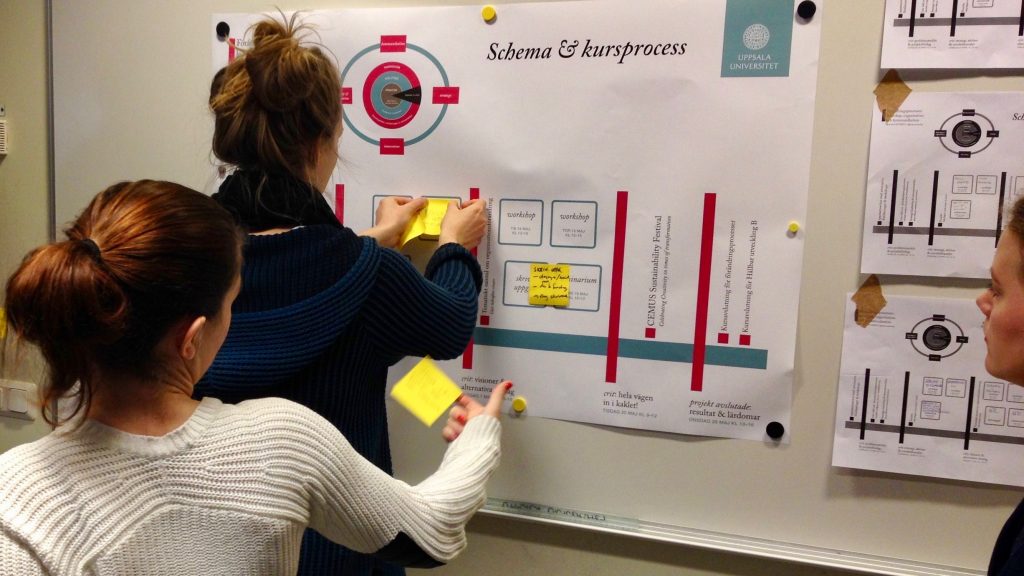
Promoting, developing, and maintaining a culture of sustainability in higher education requires an approach that ensures appropriate policies, practices, monitoring processes, and accountability mechanisms. One work package of the project was concerned with analysing the interaction between university policy and academic practice with regard to student-driven learning. This was discussed at the first project meeting in October 2014. An understanding of the influence of policy on practice developed over time and became more a question of governance and support for curriculum and professional development, as well as making the system flexible with regard to assessment.
University governance can be broken down into three stages a) it is a process which sets standards in research and teaching b) defines mechanisms to deliver standards and c) describes monitoring and assessment arrangements. The question being asked by the project is if the type of university governance is appropriate in a university that wishes to support and encourage teachers and students who wish to work with and for sustainability.
Working with transdisciplinary approaches responds to an understanding of sustainability as dependent on the participation of multiple stakeholders (teachers, students, support staff and from the wider community) to represent the multiple perspectives implicit in wicked problems. The act of identifying and actively fostering partnerships amongst stakeholders should also be an essential component of governance at all levels of operation.
The involvement of multiple stakeholders across multiple levels calls for multiple learning arrangements. This involves restructuring, redesigning, and creating programmes and courses and assessment and evaluation processes in ways that are underpinned by sustainability principles and that foster the ability and willingness to take action in response to wicked problems. Monitoring of policy implementation and practices is an important governance dimension in that it places necessary emphasis on stakeholder accountability for sustainability. Monitoring involves ongoing reflection and action at the individual level, and at all levels of institutional operation, creating a form of continuous reflexive development, leading to necessary transformative change or transgressive action.
Case studies
Governance and support for sustainability in higher education are discussed in the following three case studies.
Issues in developing a new university course in sustainability within teacher education
by Auður Pálsdóttir (University of Iceland)
Contextualizing learning: Changing and making place
by Sydney Ross Singer and Allyson Macdonald (University of Iceland)
“It feels almost surreal”: Being strategic about how we design participation in order to enlarge the space of the possible
by Jakob Grandin, Sanna Gunnarsson and Sara Andersson (Uppsala University)